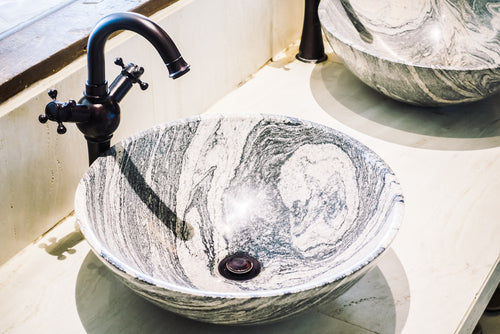
Aug 04 , 2017
Do You Need to Install a Scale Prevention System at home?
One of the frustrating but unavoidable facts of home ownership is home maintenance. Having your own place means taking care of it and there are countless little things, big and small, that can and will require fixing to keep your home in great condition. These sorts of essential every day duties can range anywhere from basic cleaning to major repairs.
Among the more common issues faced by homeowners is the necessity of having to deal with problems with water and plumbing systems. Depending on your location and your water supply, there is a good chance you may have to deal with hard water, which is water that contains minerals such as calcium and magnesium. If left untreated, these chemicals can build up and result in limescale, which can pose serious problems for the functionality of any water system. Limescale can also impair the functionality of hot water heaters, central heating systems, washing machines, dishwashers, coffee makers, irons and internal plumbing systems, especially in homes with older pipes.
Fortunately, while it is one of the more common problems people face regarding home maintenance, limescale is also one of the easier problems to identify and to fix. Look for the following signs to determine if you need to install a scale prevention system in your home.
Signs You Might Need a Scale Prevention System
There are many ways to tell if your home might be susceptible to scale build-up. One of the most straightforward methods of testing is through wet titration, which will give you a good indication of your waters makeup. Alternatively, a water testing strip can provide you with a full rundown of your water balance.
There are several visible means of determining whether hard water exisits. The minerals in the water solidify most noticeably if the water has been heated past 131° Fahrenheit and left to stand, so a common place to find scale build-up is on the heating element of the kettle or the coffee maker in your kitchen.
Other frequent indications are a furry build-up on faucets and around plug holes or slightly yellowed clothes. Soaps and toothpastes froth a lot less readily in hard water than in soft water, so if you find your hand soap, shampoo, or detergent isnt working as it should, its worth checking to see if the problem might be in your water.
Ultimately, if it is left untreated, the build-up of limescale can result in a significant loss of energy efficiency in an appliance and can potentially result in the appliance burning itself out far earlier than it should. That being the case, if you do have an issue with hard water, it is worth dealing with it sooner rather than later.
Dealing with Scale Build-up
There are many ways to deal with a build-up of scale in your home. For small build-ups, such as solid deposits on a kettle or your faucets, using a basic over-the-counter solvent such as lemon juice or vinegar may be enough the acid will easily dissolve the mineral deposits and leave your appliances clean and usable.
However, for a larger accumulation of scale, this approach is not always practical.
One of the best options to deal with large scale build-up in most homes is to install a scale prevention water filter. This is unlike water softening, which replaces the calcium in the water with sodium, and which can ultimately make your water unfit for drinking or water conditioning, which uses magnetism and radio waves to clump deposits together, so the water minerals will bind with them rather than your pipes. Water filtering scale prevention systems simply remove the minerals from your water supply. They are a simple and effective way to make sure your water is clean and usable and is not damaging your home or any of your appliances.
Conclusion
Many homeowners must deal with limescale build-up in their homes or other residences at some point. It is a good idea to familiarize yourself with scale prevention systems and the early warning signs of hard water and scale build-up.
If you do live in an area with hard water and find a mineral coating inside your kettle, coffee maker, over your faucets, or in your icebox, the best way to deal with it, is to get a scale prevention system installed in your home which is designed to eliminate any issues with hard water supply. Installing a scale prevention system will make your water taste better, improve its functionality, increase the lifespan of your appliances and save you money in the years ahead.


